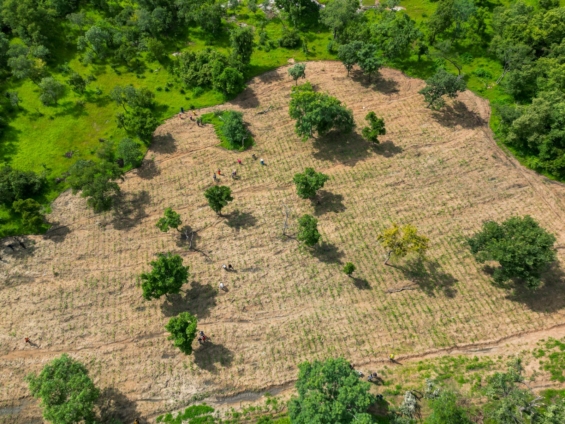The Deputy Director of the Environmental Protection Agency (EPA) in the Western Region, Kwadwo Opoku-Mensah, has reiterated the need for citizens at all levels in the communities to make it a duty to reduce greenhouse emissions and their effects on climate change in the country.
He noted that awareness creation and behaviour change were very critical in efforts to reduce methane gases.
“We should make conscious efforts to reduce waste, ask yourself, what can I do to stop greenhouse gases, like open burning,” he added.
Methane, a hydrocarbon, is a primary component of natural gas and greenhouse gas (GHG) that affects the earth’s temperature and climate change.
Mr Opoku-Mensah gave this piece of advice at a stakeholder’s engagement on natural resource and environmental governance.
The stakeholders discussed climate change and adaptation plans at an event organised by Friends of Nation (FON) with support from Oxfam Ghana in Takoradi in the Western Region.
He explained that activities emitting greenhouse gases are linked to various processes such as the use of fossil fuels for energy production, manufacturing materials like steel, cement, and chemicals, food production, land clearing, deforestation, waste landfills, and incineration. He emphasised that these activities are contributors to climate change, and it is impractical to avoid essential needs like food production, construction, electricity generation, and transportation, as these are fundamental aspects of human life and aspirations.
He said health, agriculture, forest, water resources and energy supply sectors suffered from the effects of climate change.
Mr. Opoku-Mensah suggested mitigation measures like reducing and banning, capturing and storage, maintaining and enhancing forests while adaptation measures should include protection or tapping opportunities to reduce climate.
“Priority adaptation programmes should include increasing resilience to climate change impacts, identifying and enhancing early warning systems, alternative livelihoods for the poor and vulnerable and enhancing national capacity to adapt to climate change through improved land use management.
The manifestation of climate change impact, he said, was clear in the lives of people, stressing “the national strategy must alleviate communities from worsening effect of climate change.”
Participants suggested that the government must show much commitment to stop illegal mining and lumbering in forest reserves, intensify re-afforestation, encourage use of solar and other renewable sources of power and check the dumping of waste.
Latest Stories
-
Thomas Partey Tournament returns to unearth Ghana’s next football stars
15 minutes -
40,000 students to access GH₵499 million loan this year – Haruna Iddrisu
16 minutes -
Police arrest 2 suspects in gruesome murder at Tema
50 minutes -
30 suspects arrested as IGP orders raids on galamsey hotspots in 3 regions
1 hour -
BlowChem announces price reductions on beverages, effective June 1
3 hours -
When lawmakers themselves appear unwilling to abide by the laws they legislate
6 hours -
Mahama promises 200,000-hectare cocoa expansion to revitalise industry
6 hours -
Communications Minister unveils gov’t’s digital inclusion plan for PWDs
6 hours -
Youth group accuses judiciary of undermining anti-corruption efforts
6 hours -
Parliament recommends ratification of WTO agreement on fisheries subsidies
7 hours -
Ghana to roll out Labour Export Initiative – Mahama announces
7 hours -
Two killed in fatal accident on Bole–Damongo Road
7 hours -
Joseph Ade Coker, former NDC Greater Accra Regional Chairman dies
7 hours -
From Bulldozing to Bail-Begging: Wontumi’s Plot Twist No One Saw Coming
7 hours -
Mahama promises new modern regional hospital for Ahafo Region
7 hours

